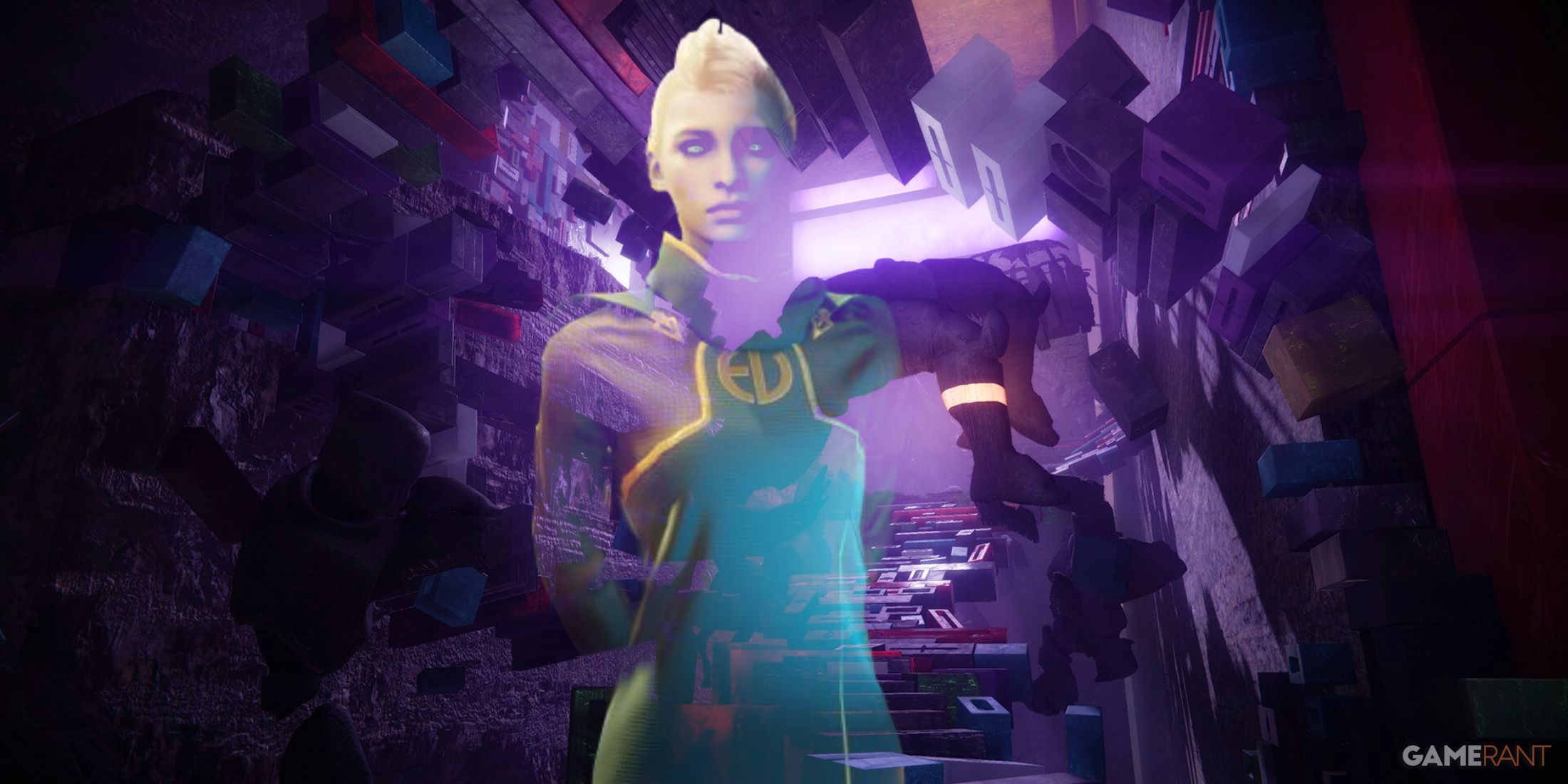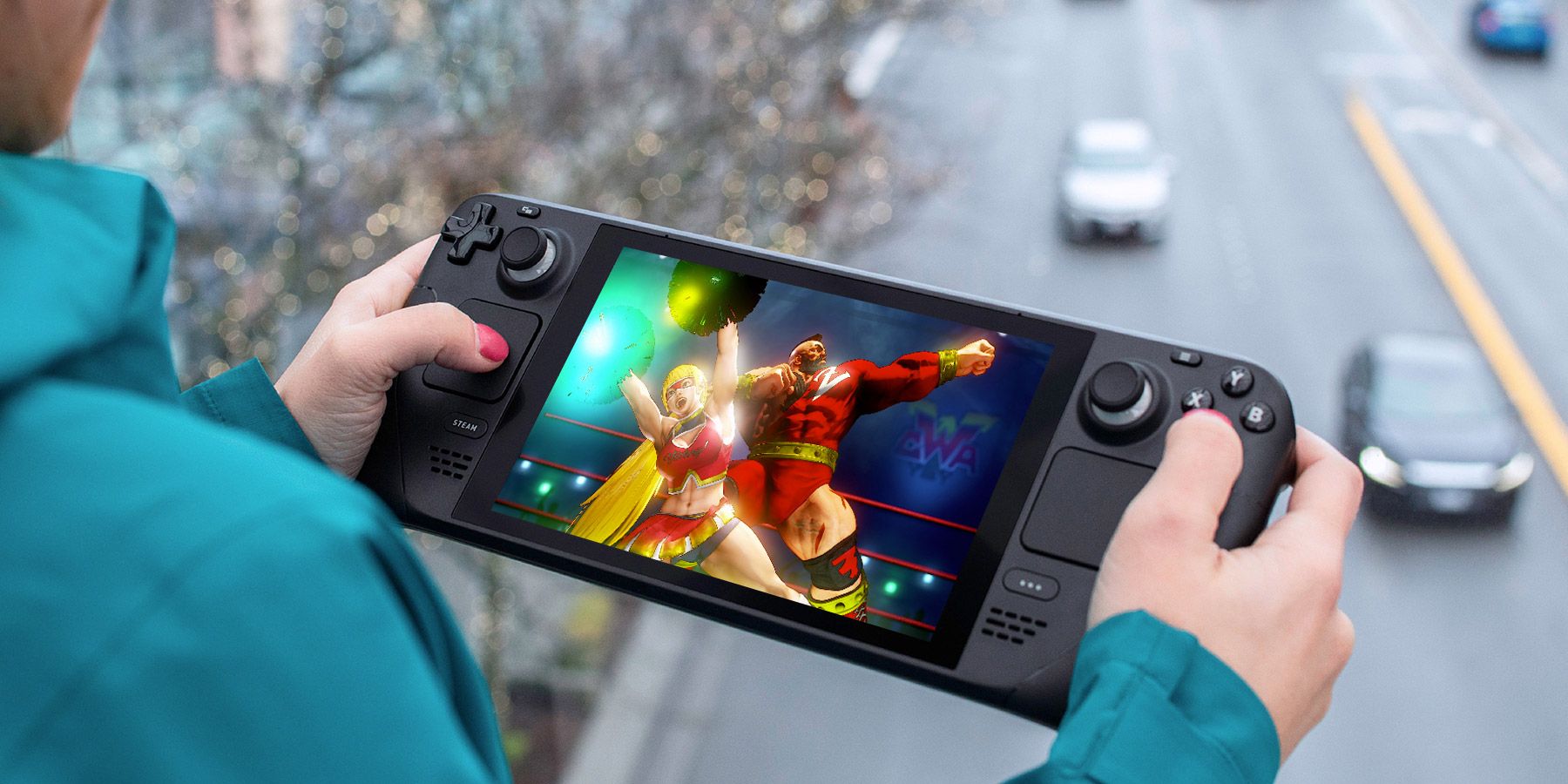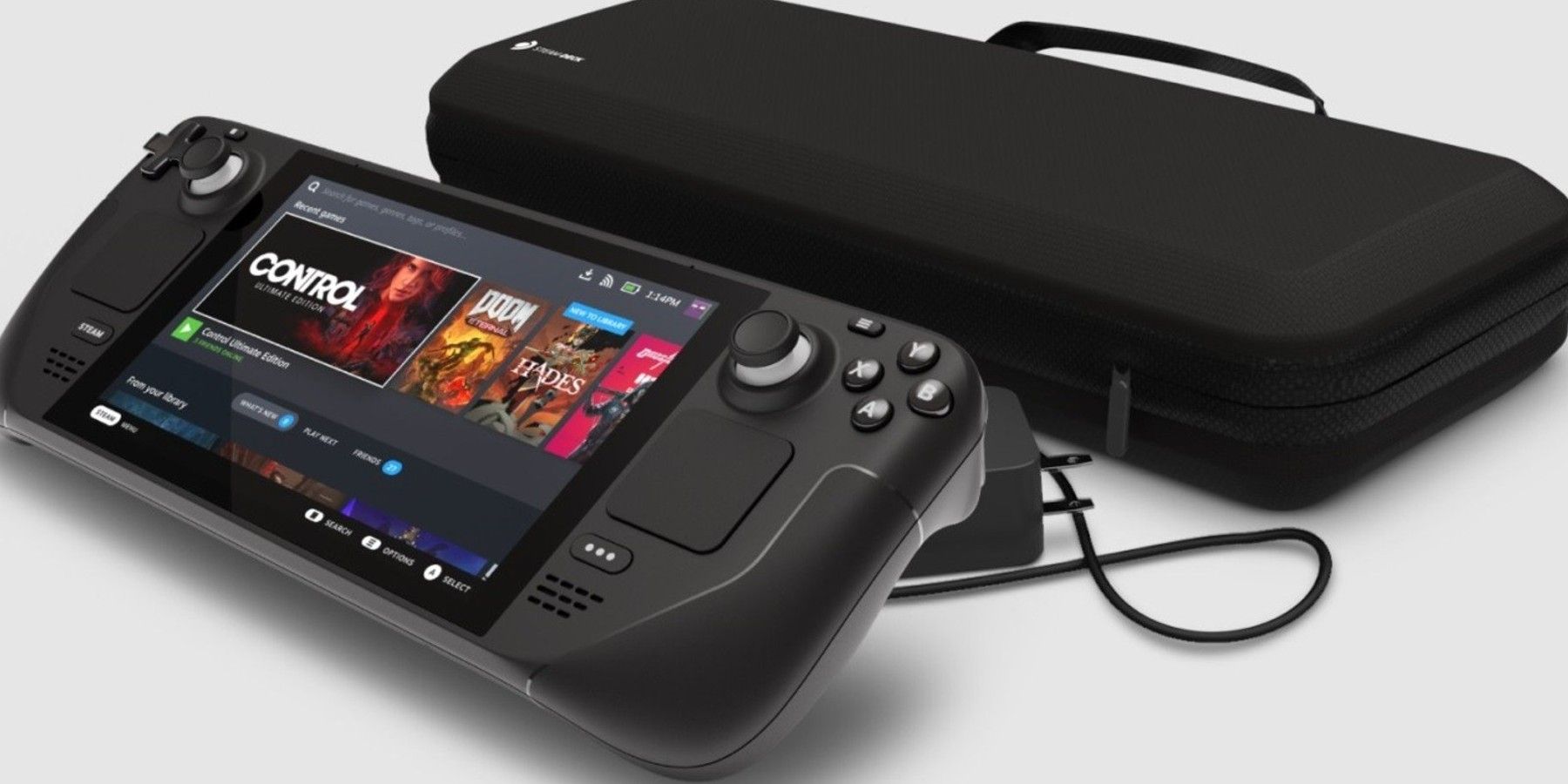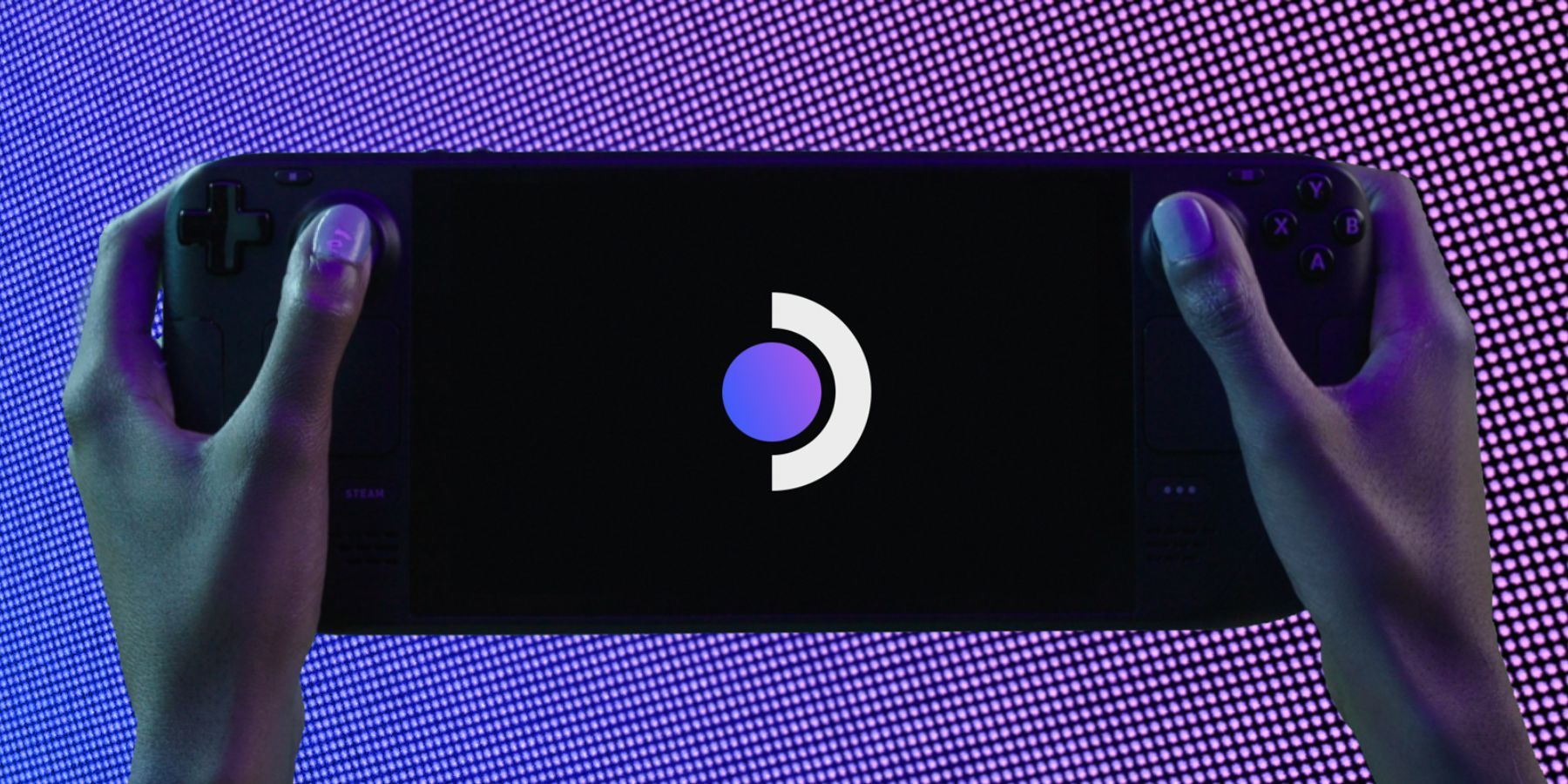Organizing larger fighting game tournaments, especially from the perspective of the grassroots fighting game community, can be a logistical nightmare. Tournament organizers have to rely on the support and passion of the community, who oftentimes dedicate their own consoles, monitors, and devices to help run the event. Throughout the years, that's involved lugging things as small as Xbox 360 or PS4 consoles, to as big as arcade machines filling up various venues across the world. The hardware used to run fighting game tournaments has continued to change and evolve over time, but the potential of Valve's Steam Deck for fighting game tournaments could be huge.
Tournament organizers have long been beholden to factors like version/hardware parity, fighting game publishers, and console exclusivity making the actual running of tournaments more difficult. Basically every Street Fighter 5 or Guilty Gear Xrd tournament was run using PlayStation 4 consoles, since those games were exclusive to Sony's hardware. However, most fighting game releases (including console-exclusive titles) were released on PC/Windows as well. Obviously lugging a giant gaming PC to a tournament is unsustainable, and gaming laptops are too expensive for a substitute, but the Steam Deck could be the ideal hardware for organizing tournaments.
Steam Deck's Potential For FGC Tournaments is Promising
While Xbox players get left out of several of the most popular console fighting game releases, ports to Windows often allow PC players to bypass any console exclusivity. Games like the aforementioned Street Fighter 5 and Guilty Gear Strive are PlayStation console exclusive, but are also available on PC. Outside of console exclusivity, most of the popular fighting games (King of Fighters 15, Dragon Ball FighterZ, Tekken 7, Soul Calibur 6) are all available on PC as well. Considering most of those titles (if not all) are available on Steam, that means most of them could potentially be playable on Steam Deck, with games like Street Fighter 5 already verified to run on the device.
Assuming hardware capability issues aren't a factor, and most games are verified to run/run well on Steam Deck, Valve's handheld gaming system could be huge for the fighting game community. Local tournaments could, at their worst, be run entirely on Steam Deck consoles propped up or set up on a kickstand. At best, players with a Steam Deck and Valve's official dock could just as easily set up a monitor to run the game, just like with Super Smash Bros. Ultimate tournaments on Switch.
The inherent portability of the Deck, alongside the vast library of fighting games released on Steam (now and in the future), mean Steam Deck could be a viable alternative for having enough hardware setups to feasibly run a tournament. Taking up less space means more stations to play the game in bracket, which leads to a more efficient running of tournament brackets in general. Steam Deck could very quickly become the perfect all-rounder device for running fighting game tournaments, assuming the hardware can levy that advantage against any potential shortcomings of Valve's device.
Hardware Compatibility is the Primary Concern
Valve's Steam Deck isn't an inherently foolproof device like gaming consoles are; as is often the nature of PC gaming in general, to some extent. Primarily, the Steam Deck would likely need developer support for fighting games to avoid any potential issues when playing on the device.
Moving from a standard PC to Steam Deck isn't a one-to-one experience, despite Valve doing its best to help streamline the transition to Steam Deck for average players. Fighting games are a much more technical beast that require consistent performance and proper optimization. Newer fighting games are more likely to meet the Deck's system requirements, but older fighting games may be a mixed bag for Steam Deck support. Steam Deck runs via a version of SteamOS, Linux software dedicated to Valve's handheld. Since most PC games are designed to run on Windows, preparing fighting games to run on Linux could be a (temporary) barrier for fighting games.
One thing that is comforting about this potential pitfall for Steam Deck is that companies like Arc System Works and Capcom have already shown preliminary support for Valve's device in some fashion. Though none are currently "Steam Deck Verified" by Valve specifically, footage is already making the rounds of games like Street Fighter 5 and Guilty Gear Strive running on the device already. Pair that with efforts in improving Proton 7.0 support to bring more PC games to the device without porting, and the Steam Deck is looking promising. That being said, not everything in an individual's Steam library will run on the Deck day-one, potentially including older fighting games.
Steam Deck: A New Tournament Standard for Fighting Games?
Assuming compatibility and performance can be overcome by most fighting games, SteamOS is a great environment for fighting game players and tournaments. Valve's comprehensive support of DualShock, Xinput, Dinput, and other generic controllers would theoretically eliminate any hurdles for players wanting to use their favorite controller or fight pad. Most fighting game players using legacy pads or fight sticks often have to invest in third-party adapters to use at fighting game tournaments, but Steam's controller support will likely encompass any fighting game controller a player wants to use, new or old.
As more players and tournament organizers get their hands on the Steam Deck, and various compatibility testing is conducted, the potential is certainly looking promising. This could easily lead to third-party hardware companies like Gaming Generations investing in Steam Deck hardware for tournaments, while high profile tournament organizers like EVO or CEO could partner with Valve to utilize its hardware when running the world's biggest fighting game tournaments. Especially when PS5 consoles are still hard to find, Valve could easily capitalize on hardware shortages to supply fighting game players with capable, tournament-ready hardware.






